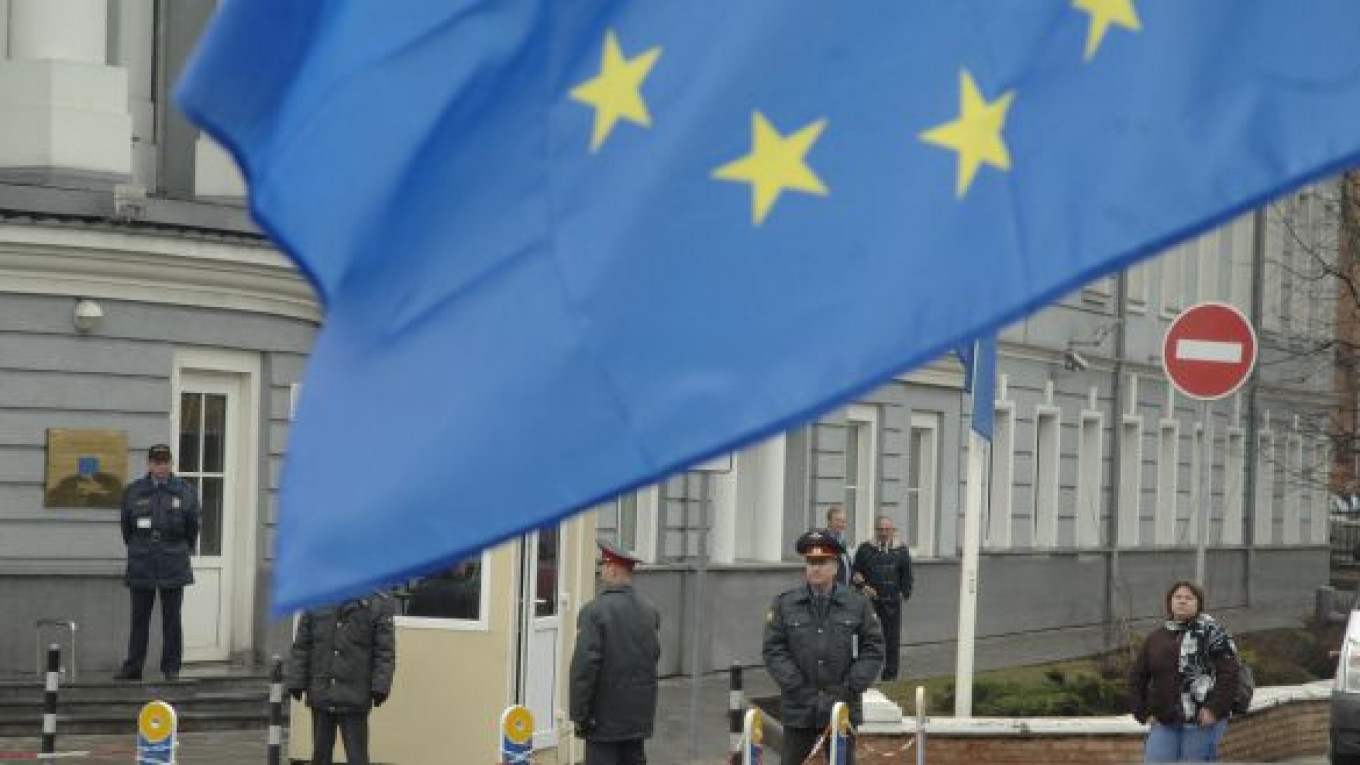The Foreign Ministry on Tuesday threatened the European Union with "retaliation" if visa-free travel is not introduced in time for the Sochi Olympics in February 2014.
Anvar Azimov, the ministry's point man on visa negotiations with the EU, said Tuesday that Moscow wants to see a breakthrough by the end of 2013.
"We will be patient for another year. But you know, it is hard to put Russians under a yoke — and then the strike [back] will be adequate and asymmetric," he told reporters, according to Interfax.
After years of fruitless attempts to ease visa restrictions, the EU and Russia last year launched a so-called "common steps" program to achieve this goal.
Azimov suggested that Moscow will fulfill its obligations for the program by mid-2013 and that it expects the EU to work at the same pace.
European officials have stressed in the past that the common steps program does not imply commitments to any time frame.
An EU spokeswoman said Tuesday that a 10-member expert delegation will arrive in Moscow this Wednesday to check the country's progress. During the 10-day mission, the experts will inspect border posts with Ukraine, Kazakhstan and the Baltic States, she said, requesting anonymity because she was not authorized to go on the record. She added that Russian inspectors will travel to EU states in mid-December.
Experts have raised serious doubts that a breakthrough will be achieved soon, citing political reservations among key EU states. German Chancellor Angela Merkel said during talks in the Kremlin on Nov. 16 that progress would be slow because of security concerns.
Azimov said that 17 EU countries were ready to "speed up" the process while 10 other members oppose doing so. He added that President Vladimir Putin would raise the issue during next month's EU-Russia summit in Brussels.
The Foreign Ministry official also said that a much-touted visa facilitation agreement would not be signed during the Dec. 21 summit.
That agreement, which would introduce long-term, multiple-entry visas for visiting businessmen, journalists and NGO workers, has been up in the air due to a spat over so-called service passport holders.
Moscow says it wants to include visa-free travel for holders of these non-diplomatic passports, which include a wide range of government officials. EU negotiators have refused to do so, citing security concerns and the fact that many of the bloc's member states do not possess such a passport category.
The Foreign Ministry raised the service passport issue suddenly last year, and diplomats have suggested it was a deliberate tactic to spoil the talks.
Moscow has added pressure by unilaterally ending a moratorium on visas for airline crews. As a result, carriers from eleven EU countries need to get visas for their staff on flights to Russia through a new procedure that they complain is costly and cumbersome.
Azimov said Tuesday that Moscow has postponed its deadline from Nov. 1 to Dec. 1 after some airlines failed to get the visas for their crews. He did not elaborate.
Related articles:
A Message from The Moscow Times:
Dear readers,
We are facing unprecedented challenges. Russia's Prosecutor General's Office has designated The Moscow Times as an "undesirable" organization, criminalizing our work and putting our staff at risk of prosecution. This follows our earlier unjust labeling as a "foreign agent."
These actions are direct attempts to silence independent journalism in Russia. The authorities claim our work "discredits the decisions of the Russian leadership." We see things differently: we strive to provide accurate, unbiased reporting on Russia.
We, the journalists of The Moscow Times, refuse to be silenced. But to continue our work, we need your help.
Your support, no matter how small, makes a world of difference. If you can, please support us monthly starting from just $2. It's quick to set up, and every contribution makes a significant impact.
By supporting The Moscow Times, you're defending open, independent journalism in the face of repression. Thank you for standing with us.
Remind me later.


